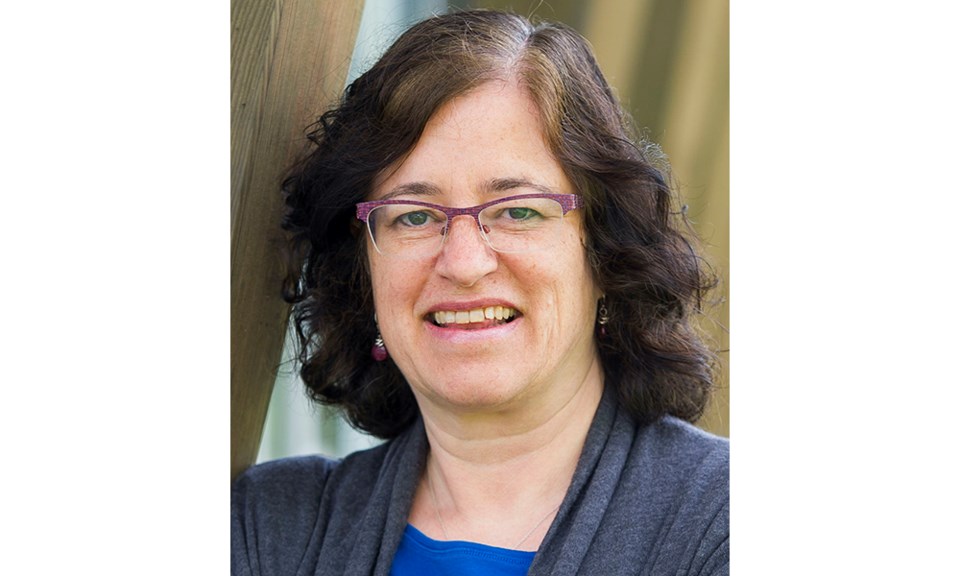The stabbing attacks at the North Vancouver library, in which six people were injured and one woman died, are tragic. Are they and other attacks around the world, including some with racist intent, a sign we’re all on the verge of losing it due to the strain of the pandemic? I hope not.
We don’t yet know the motive behind the stabbings, but they appear to have been random attacks. Six of the seven victims were women. I am not familiar with the North Vancouver library, but I am a regular at the Brighouse branch of the Richmond Public Library and I cannot imagine such violence happening there – it’s a peaceful area where people pursue their hobbies or passions; the closest thing Richmond has to a town square. Random stabbings do not belong there and I’m sure they were equally out of place in the North Vancouver civic space.
The day after the North Van stabbings, five people were stabbed in Kelowna, apparently at an outdoor gathering.
Just a couple of weeks before, a young man shot and killed eight people, many of them women of Asian descent, in a suburb of Atlanta, Georgia. A few days after that, another young man shot and killed 10 people in a Denver, Colorado grocery store.
A few points of interest arise, when thinking about this spurt of violent events across North America. First, all of the alleged perpetrators are young men. Men also account for 81 per cent of deaths from overdose, B.C.’s other health crisis. This is a message that we should be paying attention to our young men, making sure they are okay, supporting them however we can. We should be looking very hard at their experiences, for lessons in how to prevent future tragedies.
Second, I’m thankful for Canada’s gun control laws.
Finally, the Georgia shootings are particularly troubling because they may have been racially targeted at Asian people. Anti-Asian racism has been increasing around the world during the pandemic and British Columbia is not immune. The Vancouver Police Department reported that anti-Asian hate crime incidents in that city rose by 717 per cent from 2019 to 2020. The Richmond RCMP was not able to immediately provide similar statistics for Richmond, the city with the highest proportion of visible minorities in B.C. at 76.3 per cent. The predominant minority group in Richmond is Chinese, at 53 per cent of the population, City of Richmond statistics show.
I would hope racism plays no role in this very diverse city, but I’m likely naïve.
Just this week, two more anti-Asian crimes were reported in Metro Vancouver, one at the University of British Columbia, the other in a Richmond coffee shop.
Last weekend, as people in B.C. rallied against anti-Asian racism, Rachna Singh, the province’s parliamentary secretary for anti-racism initiatives, said hate has a long history in B.C. and still exists today.
“From the head tax to numerous attacks against people of Asian descent during the COVID-19 pandemic, racism in Canada is just as pervasive, systemic and violent. To think otherwise is, at best, naiveté and, at worst, complicity,” Singh said in a statement. “But, we are strong. The Asian Canadian community has demonstrated inspiring resiliency. The strength and spirit of our communities will not be diminished.”
We must speak out against racism when we see it, Singh says, and I agree. We are one human race – stronger together than when divided.
These latest violent events have happened under COVID-19’s long, dark shadow, and just as we are entering the pandemic’s third wave, which, fueled by more contagious and deadlier COVID-19 variants of concern, could be the worst wave yet. This week, provincial health officer Dr. Bonnie Henry brought in the toughest restrictions since last March, closing in-door dining, shuttering gyms and, finally, strengthening the mask mandate in elementary schools.
Desperate people may get even more desperate as the pandemic drags on and on. More jobs will be lost and the ongoing lack of social interaction will increase isolation. But, even at this darkest hour, there is hope in the form of vaccines.
The Pfizer and Moderna vaccines appear to be tremendously effective, possibly after just one dose. This week, Canada put a pause on giving the AstraZeneca vaccine to people younger than 55, due to concerns over blood clots. So, while that may be a dark spot, the AstraZeneca vaccines were extras, added on over and above B.C.’s age-based vaccine plan. That means our every adult in B.C. who wants to be vaccinated should get the jab by the end of this summer, if not sooner.
That’s cause for celebration over desperation. If we can just hold out a few more months, the pandemic could soon be much less of a concern, if not over entirely. Hang in there, look out for each other and take a deep breath – we can get there.
Tracy Sherlock is a freelance journalist who writes about education and social issues. Read her blog or email her [email protected].



